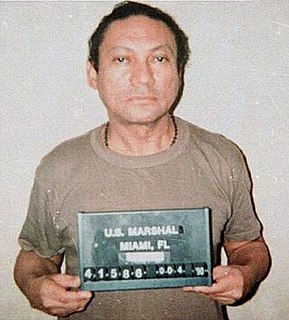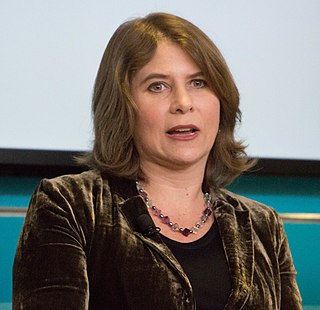Related Research Articles

Organized crime is a category of transnational, national, or local groupings of highly centralized enterprises run by criminals to engage in illegal activity, most commonly for profit. While organized crime is generally thought of as a form of illegal business, some criminal organizations, such as terrorist groups, rebel forces, and separatists, are politically motivated. Sometimes criminal organizations force people to do business with them, such as when a gang extorts money from shopkeepers for "protection". Street gangs may often be deemed organized crime groups or, under stricter definitions of organized crime, may become disciplined enough to be considered organized. A criminal organization can also be referred to as a gang, mafia, mob, ring, or syndicate; the network, subculture, and community of criminals involved in organized crime may be referred to as the underworld. Sociologists sometimes specifically define a "mafia" as a type of organized crime group that specializes in the supply of extra-legal protection and quasi-law enforcement. Academic studies of the original "Mafia", the Sicilian Mafia, which predates the other groups, generated an economic study of organized crime groups and exerted great influence on studies of the Russian mafia, the Chinese Triads, the Hong Kong Triads, and the Japanese Yakuza.

People smuggling, under U.S. law, is "the facilitation, transportation, attempted transportation or illegal entry of a person or persons across an international border, in violation of one or more countries' laws, either clandestinely or through deception, such as the use of fraudulent documents".

The Brookings Institution, often simply called Brookings, is an American research group founded in 1916 on Think Tank Row in Washington, D.C. It conducts research and education in the social sciences, primarily in economics, metropolitan policy, governance, foreign policy, global economy, and economic development. Its stated mission is to "provide innovative and practical recommendations that advance three broad goals: strengthen American democracy; foster the economic and social welfare, security and opportunity of all Americans; and secure a more open, safe, prosperous, and cooperative international system."

Narco-state is a political and economic term applied to countries where all legitimate institutions become penetrated by the power and wealth of the illegal drug trade. The term was first used to describe Bolivia following the 1980 coup of Luis García Meza which was seen to be primarily financed with the help of narcotics traffickers. Other well-known examples are Mexico, Colombia, and Guinea-Bissau, where drug cartels produce, ship and sell drugs such as cocaine and marijuana.

Antonio Maria Costa is an Italian economist. He lives in Vienna and Brussels.

Rosa Brooks is an American law professor, journalist, author and commentator on foreign policy, U.S. politics and criminal justice. She is the Scott K. Ginsburg Professor of Law and Policy at Georgetown University Law Center. Brooks is also an adjunct scholar at West Point's Modern War Institute and a senior fellow at the New America Foundation. From April 2009 to July 2011, Brooks was a counselor to Under Secretary of Defense for Policy Michèle Flournoy.

Transnational organized crime (TOC) is organized crime coordinated across national borders, involving groups or markets of individuals working in more than one country to plan and execute illegal business ventures. In order to achieve their goals, these criminal groups use systematic violence and corruption. Common transnational organized crimes include conveying drugs, conveying arms, trafficking for sex, toxic waste disposal, materials theft and poaching.

The illegal drug trade in Colombia has, since the 1970s, centered successively on four major drug trafficking cartels: Medellin, Cali, Norte del Valle, and North Coast, as well as several bandas criminales, or BACRIMs. The trade eventually created a new social class and influenced several aspects of Colombian culture and politics.
Laura J. Lederer is a pioneer in the work to stop human trafficking. She is a legal scholar and former Senior Advisor on Trafficking in Persons in the Office for Democracy and Global Affairs of the United States Department of State. She has also been an activist against human trafficking, prostitution, pornography, and hate speech. Lederer is founder of The Protection Project, a legal research institute at Johns Hopkins University devoted to combating trafficking in persons.

Carol Graham is the Leo Pasvolsky Senior Fellow at the Brookings Institution, a College Park professor at the School of Public Policy at the University of Maryland, a research fellow at the Institute for the Study of Labor (IZA), and the author of numerous books, papers and edited volume chapters.

The Blue Heart Campaign is an international anti-trafficking program started by the United Nations Office on Drugs and Crime (UNODC). Established in 1997, the UNODC supported countries in implementing three UN drug protocols. In 2000, after the UN General Assembly adopted the Protocol to Prevent, Suppress and Punish Trafficking in Persons, the UNODC became the “guardian” of that protocol and assumed the functions of fighting against human trafficking. The Blue Heart Campaign was launched in March 2009 by the Executive Director of the UNODC, Antonio Maria Costa, during his address to the World's Women's Conference meeting in Vienna. The campaign's symbol is a blue heart. The Blue Heart Campaign uses its website, as well as Facebook, Twitter, YouTube, and Flickr to communicate goals, objectives, and news with the public.

Corruption in Mexico has permeated several segments of society – political, economic, and social – and has greatly affected the country's legitimacy, transparency, accountability, and effectiveness. Many of these dimensions have evolved as a product of Mexico's legacy of elite, oligarchic consolidation of power and authoritarian rule.

James M. Goldgeier is a professor of international relations at the School of International Service at American University in Washington, D.C., where he served as dean from 2011 to 2017. He became dean in August 2011. Previously he was employed at George Washington University in Washington, D.C., as professor of political science and international affairs (2004–2011), associate professor of political science and international affairs (1998–2004), and assistant professor of political science and international affairs (1994–1998). While at George Washington University, he also served as director of the Institute for European, Russian and Eurasian Studies (2001–2005), for which he had previously served as acting director (1999–2000). Before joining George Washington University, he taught at Cornell University (1991–1993).
British firms are organised crime groups originating in the United Kingdom.
Shadi Hamid is an American author and a senior fellow in Brookings Institution. He is also a contributing writer at The Atlantic. He has been called a "prominent thinker on religion and politics" in the New York Times and was named as one of "The world's top 50 thinkers" in 2019 by Prospect Magazine. He is known for coining the phrase "Islamic exceptionalism" to describe Islam's resistance to secularization and outsized role in public life, but it has come under some criticism.
IDEA-NEW is an acronym for Incentives Driving Economic Alternatives for the North, East and West, and is a United States Agency for International Development (USAID)-funded program in Afghanistan. It works with farmers to grow different crops in provinces where poppies are frequently grown for opium production and collaborates with Afghan governmental bodies such as the Ministry of Agriculture, Irrigation and Livestock, the Ministry of Women's Affairs and the Ministry of Counter Narcotics. The fact that the program consults with local Afghans "at every stage of its operations" and uses almost all Afghan people on staff makes this project both unusual, and according to Trudy Rubin, more successful than other civilian-aid programs backed by the United States.
Keith Humphreys is an American psychologist currently the Esther Ting Memorial Professor at Stanford University, a Senior Research Career Scientist in the Veterans Health Administration, and an Honorary Professor at the Institute of Psychiatry, King's College, London. His scholarship has focused on addiction, veterans' health, self-help groups for chronic diseases, electronically delivered mental health treatments, and the extent to which samples in treatment research differ from real-world patients in everyday clinical practice. He has published over 300 peer-reviewed articles and his work has been cited over 15,000 times. He is The Americas Editor for the journal Addiction.
Gretchen Peters is an American journalist and advisor. An expert on transnational organized crime, she is the author of Seeds of Terror: How Drugs, Thugs, and Crime Are Reshaping the Afghan War. She is the executive director of the Center on Illicit Networks and Transnational Organized Crime, an operational think tank focused on the intersection between transnational organized crime and national security and the executive director of The Satao Project, a consulting firm that supports governments and industries to counter serious organized crime and corruption, and their convergence with terrorism, violence and social unrest.
Crime in the State of Palestine is present in various forms which include property theft, drug trafficking, arms trafficking, burglary, human trafficking and terrorism.

The COVID-19 pandemic has impacted crime and illicit economies such as organised crime, terrorism, street crime, online crime, illegal markets and smuggling, human and wildlife trafficking, slavery, robberies and burglaries.
References
- ↑ Bailey, Julia (2013-11-19). "Authors on Asia". hchouston.clubs.harvard.edu. Retrieved 2017-10-17.
- ↑ "The Development response to drug trafficking in Africa" (PDF). usaid.gov. 2013-04-01. Retrieved 2017-10-17.
- 1 2 3 4 "Smart Adjustments or Dropping the Ball? Mexican Anti-Crime Policies" (PDF). cls.unisg.ch. 2014-11-04. Retrieved 2017-10-17.
- 1 2 Felbab-Brown, Vanda (2017-10-05). "Public Presentation: "Global Wildlife Trafficking and Conservation Dilemmas"". jacksonholechamber.com. Retrieved 2017-10-17.
- ↑ Lally, Kathy (2011-03-29). "Russia, U.S. keep lines open on narcotics". washingtonpost.com. Retrieved 2017-10-17.
- ↑ Hawley, Chris (2010-11-15). "South American gangs flying vast quantities of cocaine to Europe". theguardian.com. Retrieved 2017-10-17.
- 1 2 3 4 "Vanda Felbab-Brown" (PDF). brookings.edu. 2017-03-01. Retrieved 2017-10-17.
- ↑ "Vanda Felbab-Brown" (PDF). oversight.house.gov. Retrieved 2017-10-17.
- ↑ "Contact Brookings". brookings.edu. Retrieved 2017-10-17.
- ↑ Carroll, Rory (2010-02-16). "Why the war on drugs in Colombia may never be won". theguardian.com. Retrieved 2017-10-17.